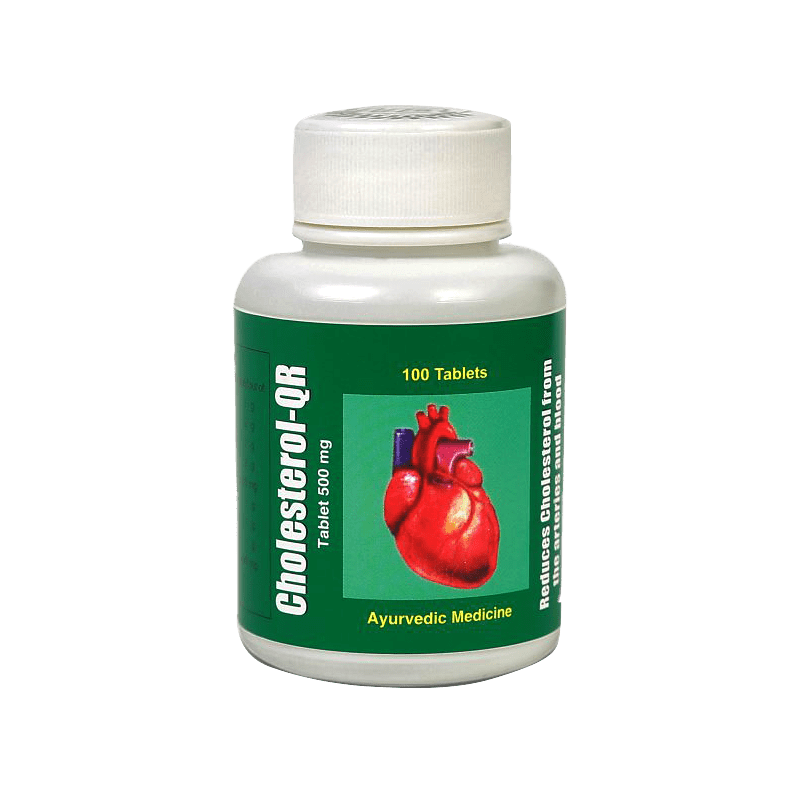Heart Disease
Ayurvedic treatment for Heart Disease and Heart Blockage
Understanding Heart Disease and Blockage
Heart diseases are conditions that impair the heart's ability to function. One of the major concerns is blockages in the coronary arteries that may impede blood flow and create complications in the form of heart attacks and strokes. Ayurvedic medicines for heart disease focus on natural herbs like Arjuna, Ashwagandha, and Triphala to support cardiovascular health and balance the body's energies.
Some common causes of heart disease include:
- High cholesterol levels
- Hypertension (high blood pressure)
- Diabetes
- Obesity
- Chronic stress
- Malnutrition
- Inactivity
Standard treatments for heart disease encompass medications, lifestyle changes, and surgical options such as angioplasty or bypass surgery. Even though these treatments are known to be effective independently, Ayurvedic Medicines for Heart Disease and the overall treatment a complementary approaches to heart health. Cholesterol-QR used along with Arthritis-QR Syrup thereby encourages optimum efficiency of cardiac muscles, valvular function, and overall cardiac condition and assists in improving heart function and circulatory well-being. These formulations are Ayurvedic and are known for their strengthening value for the cardiovascular system, giving heart health a very holistic approach.
Ayurvedic Medicines for Heart Disease and Blockages
Ayurveda, with its focus on balancing the inner energies of the body or 'doshas' and detoxifying for the purpose of improving heart function, has much to offer. Some of the Ayurvedic approaches are:
Panchakarma Detox Therapy: Treatments like Hridaya Basti (heart oil therapy) and Virechana (detoxification through purgation) act toward the cleansing of the body and enhancement of circulation.
Heart Cleansing: The application of these herbal infusions and detoxifying formulations aids arterial health and cholesterol inhibition.
Stress Management: Stress-relieving measures to pacify the heart are meditation, pranayama, and emotional well-being.
Herbal Support: Ayurvedic medicines and formulations support the cardiovascular system through circulation improvement, heart muscle strengthening, and overall cardiovascular health.
Ayurvedic Perspective on Heart Health
Ayurveda also considers heart health as the balance of three doshas, Vata, Pitta, and Kapha. An imbalance in any of these energies may lead to cardiovascular problems.
- Vata Imbalance: Gives rise to irregularities in the heartbeat, high blood pressure, and other issues in the heart caused due to anxiety.
- Pitta Imbalance: This could include the possibility of causing inflammations, cholesterol levels in the body, and acidity-related heart issues.
- Kapha Imbalance: This may lead to an imperfect artery, obesity, and harm slow metabolism.
Detoxification procedures, especially Panchakarma, may help in balancing, strengthening the heart, and generally taking care of the whole cardiovascular system by removing toxins and improving circulation.
Different Ayurvedic herbs and preparations promote heart health:
- Arjuna enhances the strength of the heart muscles while promoting circulation.
- Ashwagandha is for stress reduction, heart function enhancement, and lowering of blood pressure.
- Guggul contributes to lowering cholesterol and ensuring arterial health.
- Punarnava is an asset in maintaining fluid balance and preventing complications.
- Brahmi calms the mind and lowers blood pressure.
- Shankhapushpi aids in the reduction of stress and mental fatigue, major contributors to heart ailments.
Adjuvants include traditional Ayurvedic medicine for Heart Blockage such as Hridayarnava Rasa, Arjunarishta, and Mukta Pishti used to provide cardiovascular support.
Ayurvedic Diet & Lifestyle for Heart Health
An Ayurvedic lifestyle that favors the heart incorporates:
- Sattvic Diet: Fresh fruits, whole grains, nuts, and seeds support the heart.
- Avoiding Processed Foods: Foods with high salt, fried foods, sugar, and processed foods are precursors to attacks of the heart.
- Hydration & Herbal Teas: Arjuna tea or garlic-infused water might be used to nourish the heart.
- Yoga & Pranayama: Breathing techniques, meditation, and yoga help with circulation and stress reduction.
- Light Exercises: Walks, stretching, yoga, etc., provide good muscle toning for the heart.
- Getting Good Sleep: Heart disease is associated with poor quality of sleep. Ayurveda recommends sleeping early and waking up early at sunrise for better nourishment to the heart.
Ayurvedic treatment is holistic and natural in maintaining heart health. However, Ayurvedic medicine for heart blockage is used in treatment as adjuncts to conventional treatment and may thus help maintain long-term cardiovascular health.
Fair Pharma Ayurvedic formulations; cholesterol-QR and Arthritis-QR Syrup provide a framework for health-promoting cardiovascular support.
For heart care, the guidance of a healthcare practitioner is needed for proper assessment and guidance.
Frequently Asked Questions
1. How long do Ayurvedic treatment for heart disease take to show results?
The response is variable from person to person depending on diet, lifestyle, and present condition.
2. Whether these Ayurvedic medicines for the heart are safe?
Ayurvedic medicines really constitute a safe approach when administered properly. You ought to always seek expert advice before starting any new regime.
3. How do stress levels affect heart health, and what are the ways Ayurveda can support heart health?
Chronic stress is known to inflict health maladies such as hypertension, palpitation, and inflammation that add to heart disease risk. Stress-relieving practices including meditation and pranayama are advised.

